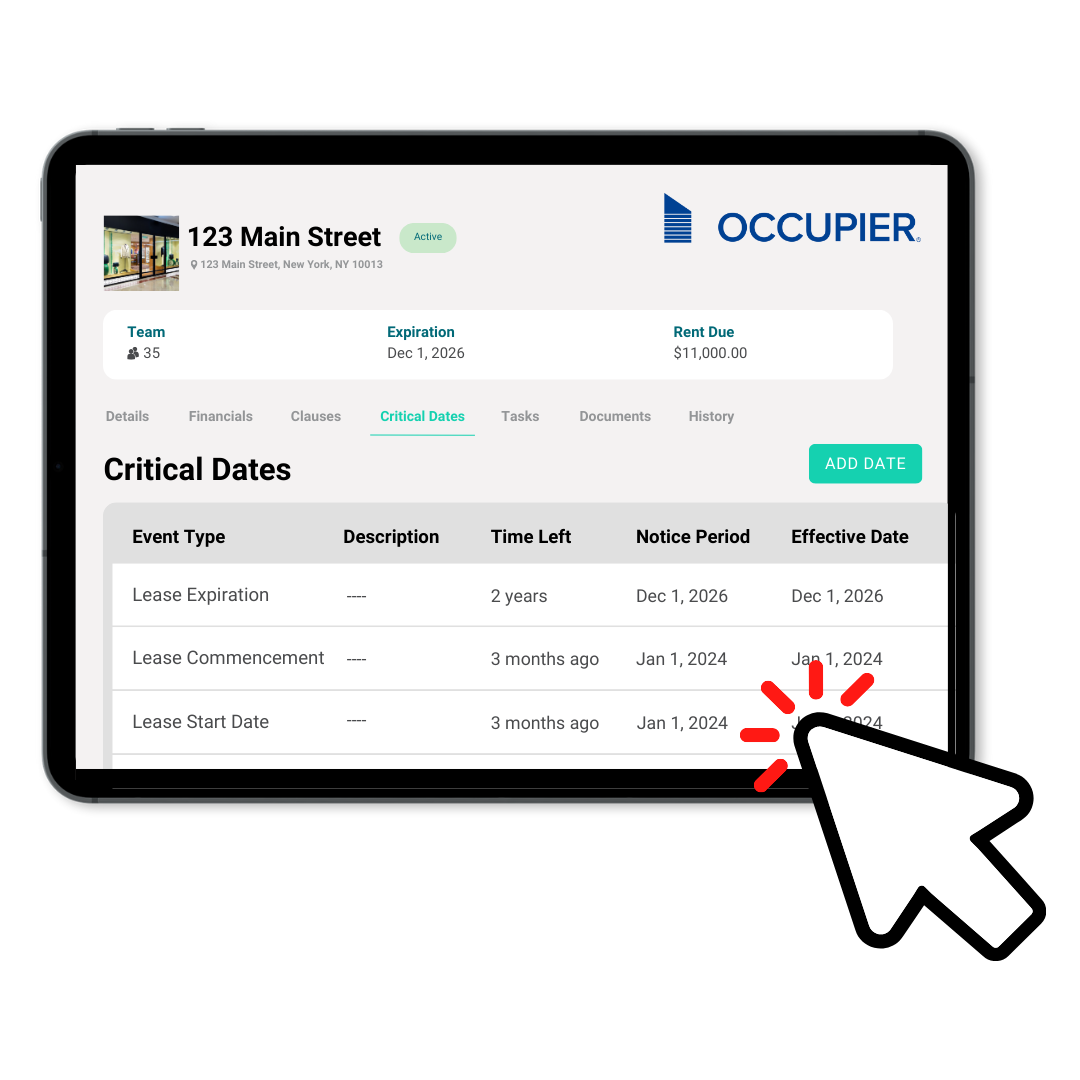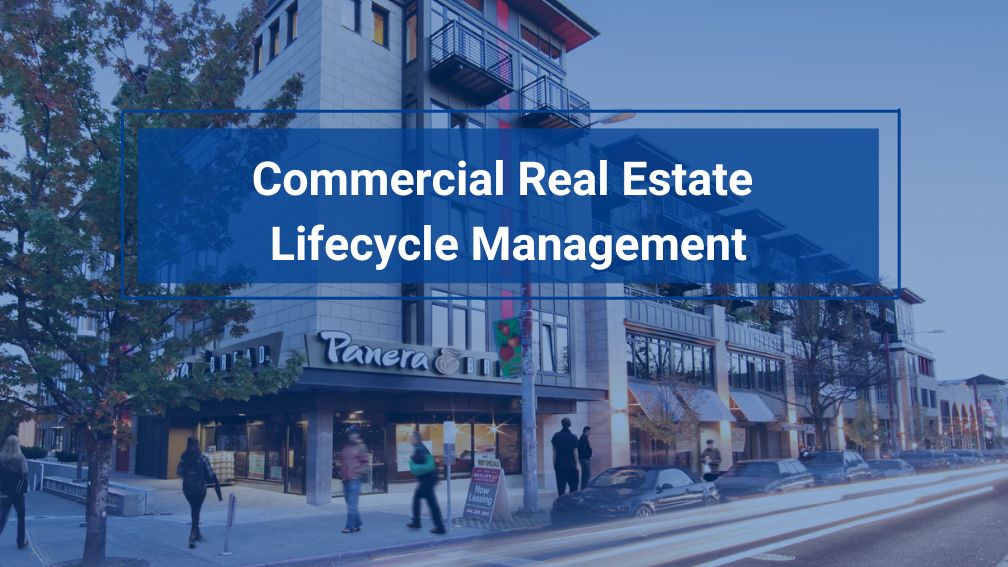Mastering the Real Estate Lifecycle: Guide to Lease & Facility Management
Last Updated on May 23, 2024 by Morgan Beard
Real estate lifecycle management is a complex and intricate process that involves various stages and responsibilities. From transaction management and lease administration to lease accounting, task management, facilities management, and space management, each step plays a crucial role in ensuring seamless operations and maximizing the value of real estate assets.
In this blog post, we will take a deep dive into the lifecycle of real estate management, highlighting the significance of each stage and exploring the challenges faced by real estate, facilities and finance professionals. Strategic planning of your real estate asset lifecycle with a holistic approach to project management and capital planning creates a strong foundation for real estate truth. More and more efficiencies and operational enhancements have elevated the real estate operations function.
The Real Estate Lifecycle Process
Transaction Management
Every real estate expansion journey starts with transaction management. This phase involves site selection workflows to identify potential properties, review comps and create proposals. Ultimately, submitting LOI’s and negotiating leases in collaboration with your tenant-rep broker and landlord. A smooth and efficient transaction and deal pipeline process sets your real estate and finance teams up for lease management success.
Transaction management can be accompanied by numerous challenges, such as tracking documents, collaborating with multiple parties, and ensuring compliance with legal and financial requirements. The use of technology solutions, like Transaction Management by Occupier, can simplify this phase by providing a user-friendly and collaborative platform that centralizes data, automates workflows, and facilitates seamless task management communication.
Lease Administration
Once the transaction is complete, the focus shifts to lease administration. This stage involves lease abstraction of pertinent real estate leasing data from the executed lease agreements. From there, your real estate teams will need to maintain leasing records, including tracking critical dates, rent expenses and obligations. Effective lease administration is essential for mitigating risks, ensuring compliance, and optimizing lease performance.
However, lease administration can be a daunting task, especially when dealing with a vast portfolio of properties and leases. Manual processes and disconnected data sources can lead to errors, delays, and a lack of transparency. Employing advanced lease management software can streamline lease administration by automating lease workflows, providing real-time visibility into lease data, and generating comprehensive reports.
Lease Accounting
Lease accounting is a vital component of real estate lifecycle management, especially with the introduction of new lease accounting standards such as ASC 842 and IFRS 16. These standards require organizations to recognize lease assets and liabilities on their balance sheets, impacting financial reporting and compliance. Which means that real estate and finance teams need to be more aligned than ever before.
Managing lease accounting manually can be time-consuming and error-prone. A robust lease accounting solution that can accurately track lease modifications and amendments in order to calculate lease expenses, generate financial reports, and ensure compliance with accounting standards is a must. Integrated lease accounting software, such as Occupier, can automate lease calculations, facilitate journal entries, and simplify the overall lease accounting process.
Task Management
Efficient task management is crucial for keeping real estate operations on track. This includes managing automated notifications, pings to update accurate information, ongoing maintenance tasks, repairs, vendor contracts, and other operational activities. Effective task management ensures that facilities are properly maintained, lease compliance requirements are met, and tenant satisfaction is maximized.
However, manual task management processes can be inefficient and lack visibility. Real estate teams need a comprehensive solution that centralizes task management, automated workflows, and provides real-time updates on task statuses. By leveraging technology platforms, like Occupier, real estate professionals can streamline task management, improve communication, and ensure that critical tasks are completed efficiently.
Construction & Build Out Management
In addition to the various stages and responsibilities involved in lease lifecycle management, it is crucial to consider the role of Construction & Build Out Management. This facet of the process focuses on overseeing the construction and buildout of real estate properties, ensuring that they meet the necessary standards and align with the desired specifications. Construction & Build Out Management plays a pivotal role in optimizing the functionality and visual appeal of real estate assets, while also ensuring compliance with building codes and regulations.
Effective management of construction and buildout phases involves coordinating with contractors, architects, and other stakeholders to maintain timelines and budgets. Moreover, this process includes quality control measures and risk management strategies to address potential issues and ensure the project’s successful completion.
Facilities Management
Facilities management plays a pivotal role in ensuring the smooth operation of buildings and infrastructure. This includes managing maintenance, repairs, inspections, security, and tenant amenities. A well-executed facilities management strategy is essential for enhancing tenant experiences, optimizing asset performance, and minimizing operational maintenance costs.
Implementing a facilities management process that aligns real estate, finance and facilities teams around a digitized maintenance processes, and clearly outlines who is responsible for various maintenance projects is important. By harnessing data-driven insights and automating facilities management workflows, organizations can improve service delivery, proactively address issues, and enhance overall operational efficiency.
Space Management
Efficient space management is crucial for optimizing space utilization, minimizing costs, and accommodating changing business needs. By effectively managing space, organizations can ensure that available resources are utilized to their full potential, enhancing productivity and employee satisfaction.
Space management involves tracking space allocation, occupancy levels, and space utilization analysis. Implementing a robust space management solution enables real estate teams to visualize space utilization, automate movement processes, and generate comprehensive reports on space usage. This data-driven approach helps organizations make informed decisions about their real estate portfolio, leading to increased operational efficiency and cost savings.
Portfolio Analytics Management
Portfolio analytics management involves the use of lease data analysis and insights to optimize the performance of your real estate portfolios. By examining key metrics such as occupancy rates, rent expenses, CAM, and more, real estate professionals can identify trends, assess risks, and make informed decisions about their portfolio.
These analytics help in evaluating the financial health of the portfolio, identifying underperforming assets, and developing strategies to maximize returns. Implementing portfolio analytics can lead to more efficient asset management, improved operational efficiency, and increased profitability.
Technology for the Real Estate Lifecycle and Facility Management
To overcome the challenges associated with real estate management, organizations can leverage advanced technology solutions that streamline processes, enhance collaboration, and improve overall efficiency. One such solution is Occupier, a user-friendly and collaborative platform designed to meet the needs of commercial tenants, tenant-rep brokers, CPA firms, facilities & construction teams.
Occupier provides a comprehensive suite of tools and features that enable seamless management of the real estate lease lifecycle. The platform centralizes and digitizes lease data, automates workflows, and provides real-time visibility into lease performance. With Occupier, organizations can streamline transaction management, lease administration, lease accounting, task management, facilities management, and portfolio analytics, all in one integrated platform. The future of real estate management lies in leveraging technology to automate routine tasks, optimize resource allocation, and drive data-driven insights.

Product Tour
Take a self-guided tour and see how the fastest-growing commercial tenants leverage Occupier for lease management & lease accounting.
